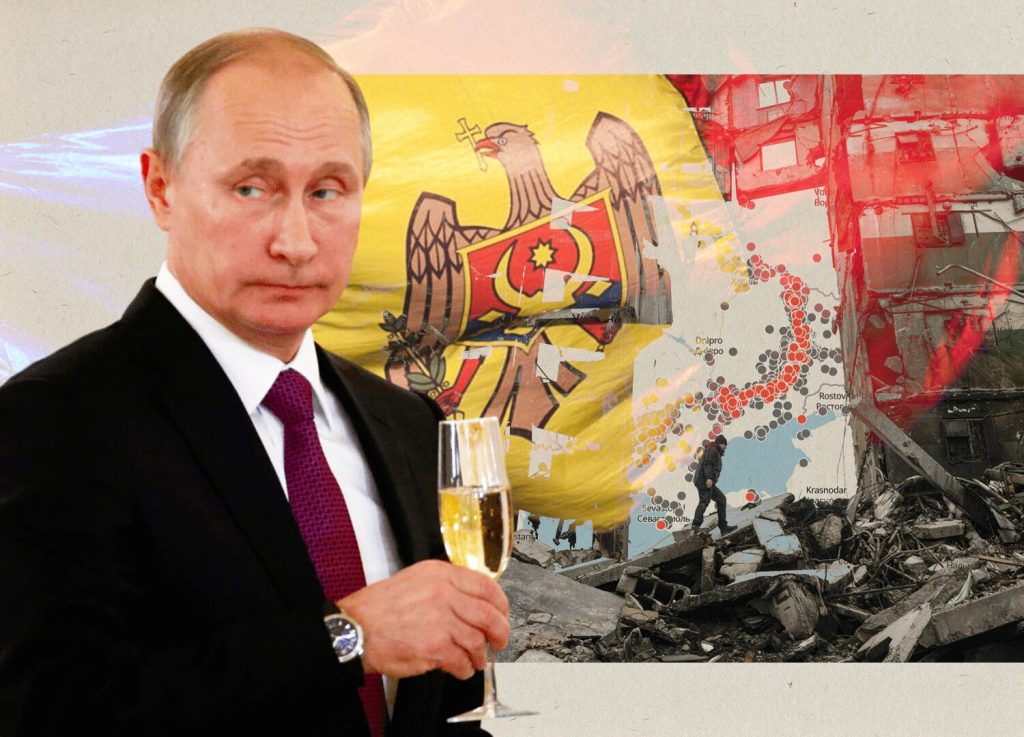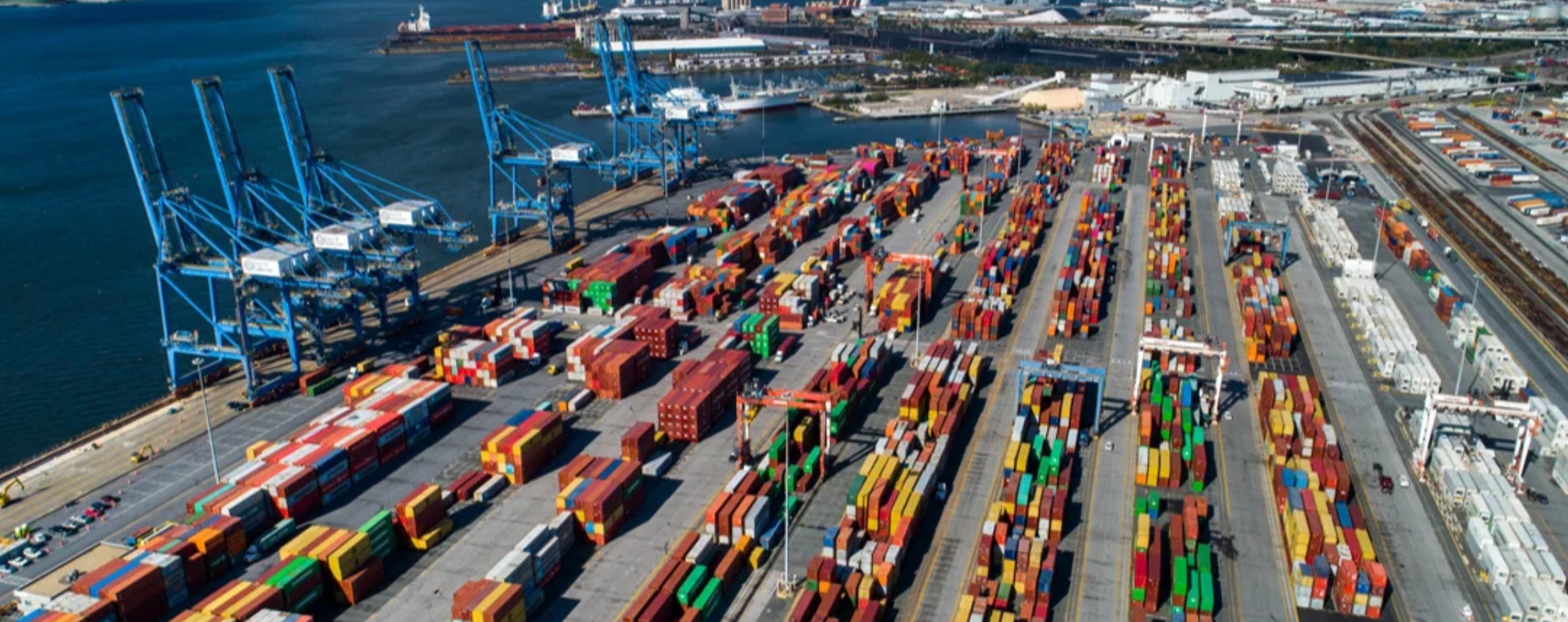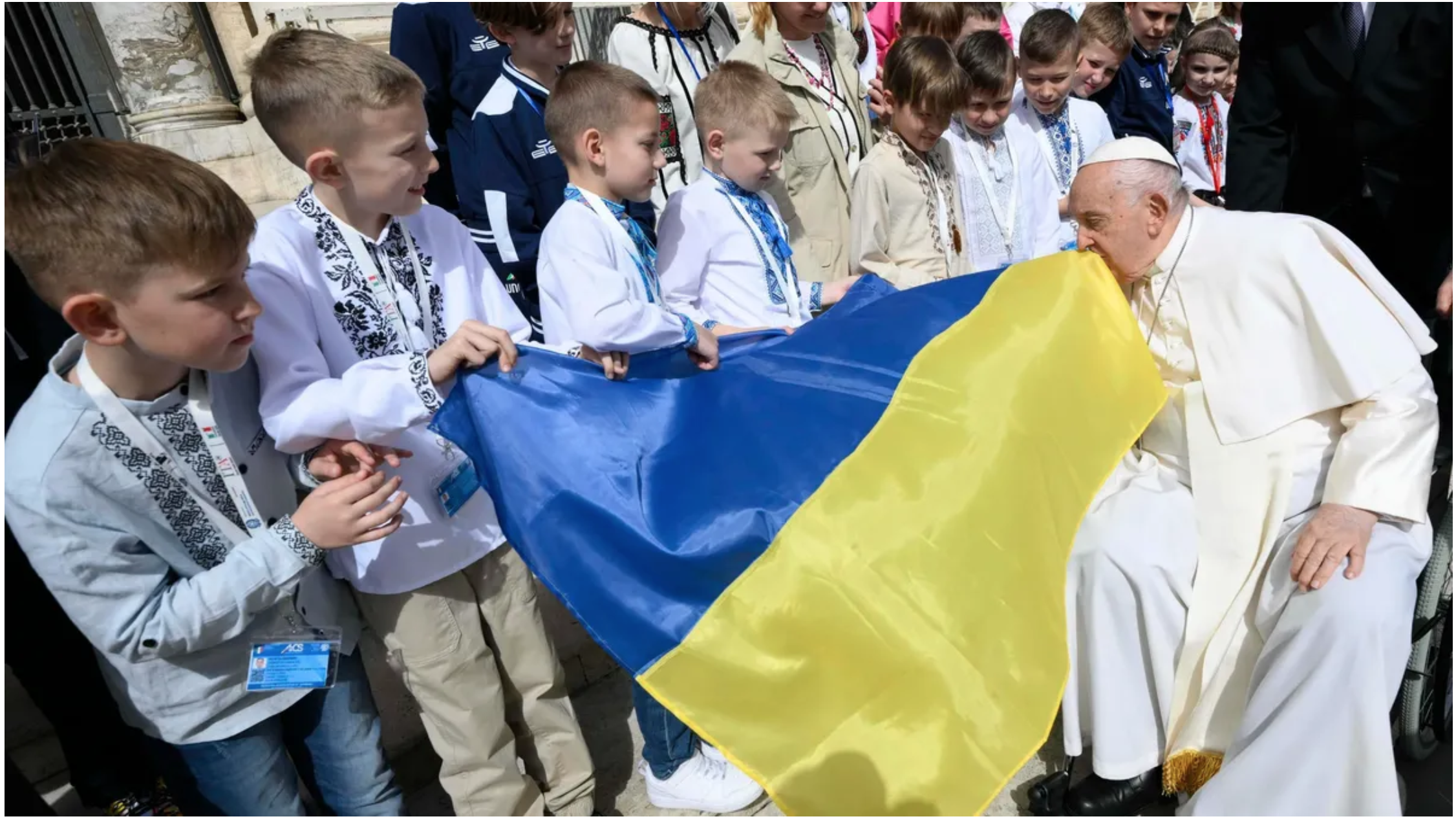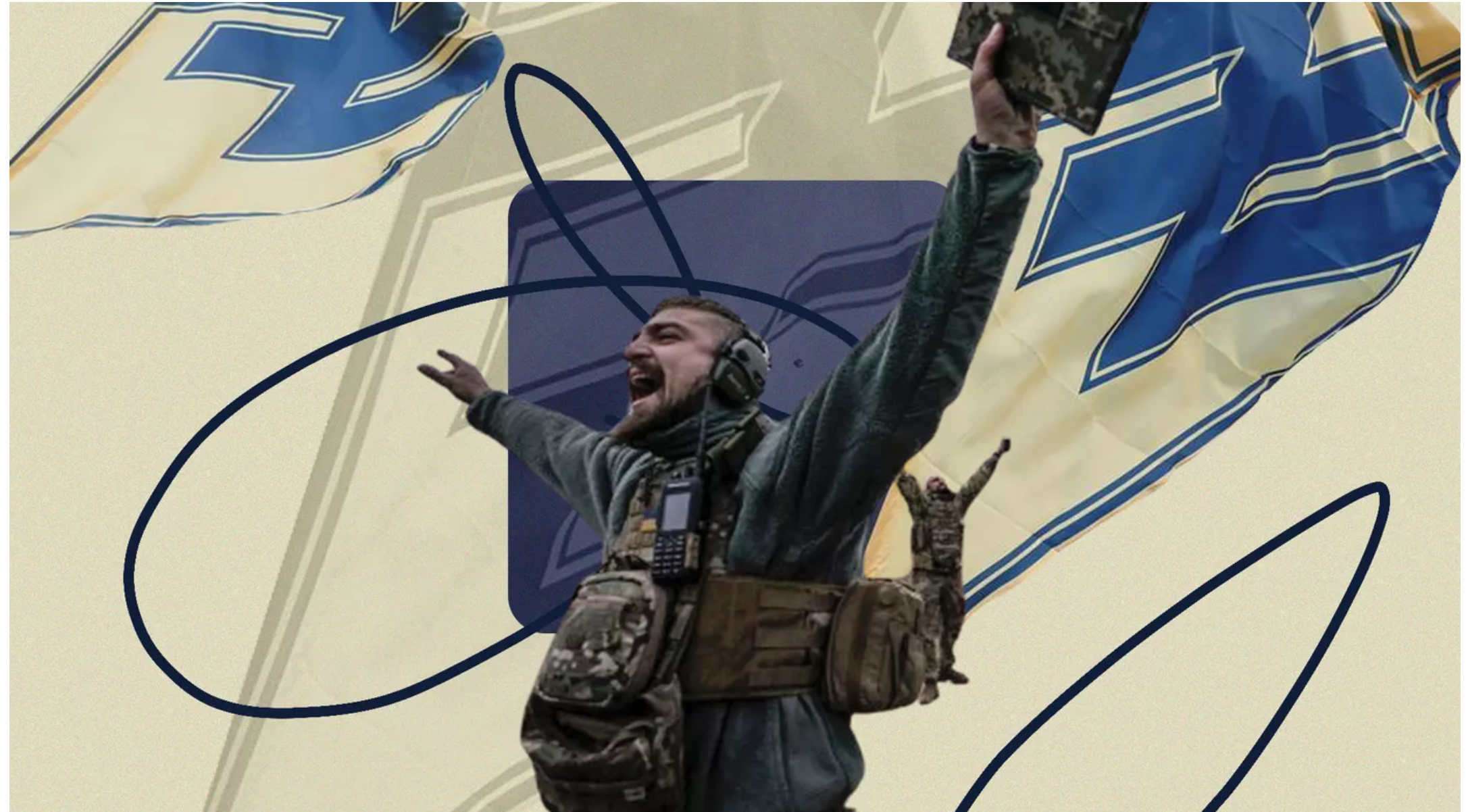Why the number of Russia supporters is growing in Moldova
More Russia supporters in Moldova
In Moldova, as shown by surveys, the number of supporters of Russia in the Ukraine war is growing. Meanwhile, the number of people who see Russia as a threat is decreasing. NM investigated why this is happening and how historical past, Stockholm syndrome, and Moldova’s socio-economic situation play a role.
Who is right?
According to the “Public Opinion Barometer” (POB) survey, in 2022, 36.2 percent of respondents believed that Ukraine was in the right in the conflict with Russia. By 2023, this figure had decreased to 33.9 percent (no POB survey has been conducted yet in 2024). During the same period, the number of those who believed Russia was in the right increased from 21.9 percent to 25.5 percent.
The percentage of “nobody is to blame” responses remained almost unchanged: 23.2 percent in 2022 and 23.9 percent in 2023. However, the number of people who did not know the answer to this question decreased from 18 percent in 2022 to 15.6 percent in 2023. The percentage of those who believe that “someone else” is right in the conflict increased from 0.7 percent to 1.6 percent.
According to the POB survey, the number of respondents who believe that Russia’s invasion of Ukraine was unprovoked has decreased. In 2022, this belief was held by 38.3 percent, but in 2023, it dropped to 33.4 percent. At the same time, the number of those who believe Russia is defending the “DNR and LNR” in this war increased from 17.1 percent in 2022 to 18.1 percent in 2023. Additionally, the number of people who think Russia is liberating Ukraine from Nazism rose from 15.1 percent in 2022 to 17 percent in 2023. Thus, the proportion of people justifying Russia’s invasion of Ukraine in some way increased from 32.2 percent to 35.1 percent over the year.
Is Putin to blame?
According to WatchDog surveys, the number of people who believe that Russian president Vladimir Putin is personally responsible for the war in Ukraine has decreased by 10 percent. In 2022, 34.2 percent of respondents held this view, but in 2023, it dropped to 24.2 percent. Meanwhile, the number of respondents who believe the United States is to blame for the war in Ukraine increased from 14.6 percent in 2022 to 17.8 percent in 2023. Additionally, the number of those who think Russia is to blame rose from 10.8 percent to 15.9 percent.
Is Russia a threat to Moldova?
According to an IRI survey, the number of people who do not see Russia as a threat to Moldova has increased from 51 percent in 2022 to 57 percent in February 2024. Meanwhile, the percentage of those who believe that Russia poses a threat to Moldova decreased from 44 percent in 2022 to 39 percent in 2023, and in February 2024, this figure stood at 40 percent.
Meanwhile, the number of respondents who believe that Russia can guarantee Moldova’s security has increased. In 2022, 13 percent of those surveyed held this view, while by 2024, this figure had risen to 18 percent.
Why is this happening?
Nostalgic population
Experts cite various reasons for the growth of pro-Russian sentiments. According to WatchDog expert Tatiana Kozhokar, the current social landscape logically fits into an existing trend: based on both past and present sociological surveys (unrelated to the war in Ukraine), approximately a quarter of respondents in Moldova hold pro-Russian views, which can be explained by “nostalgia for the ‘golden’ Soviet times.”
“The same category of the population that mourns the Soviet past also supports Russia in the war with Ukraine,” Kozhokar says.
Stockholm Syndrome
Tatiana Kozhokar also believes that Stockholm syndrome could be at play here: due to historical factors, residents of Moldova may have developed a fear of Russia.
“It is unclear whether Moldovans approve of what Russia is currently doing in Ukraine and whether they want to participate in these crimes themselves for the sake of the past or if they simply fear Russia […]. This fits into the same old paradigm that links violence with love; they stole, killed, but they also gave us something, so it should be that way. We fear Russia, but we cannot live without it,” the expert explained.

Disinformation
Additionally, Tatiana Kozhokar noted that Moldovan society tends to believe in conspiracy theories, making it highly susceptible to disinformation.
“Moldovans in general tend to explain events through the lens of conspiracy theories and great power rivalry, in line with Cold War logic. For them, the idea that Russia is fighting against the West for ‘traditional values’ or for a multipolar world completely explains and justifies the invasion of Ukraine. These people believe that Ukraine is to blame because it ‘betrayed’ Russia by daring to pursue its national interests and diversify its external relations with European states,” the expert said.
She also pointed out that residents of Moldova believe the narrative that Russia started the war because of Ukraine’s intentions to join NATO and the EU. “Today, four out of ten Moldovans believe that Russia is actually fighting against NATO, not the Ukrainian army,” the expert added.
War fatigue
Political analyst Dionis Chenusha holds a different opinion. He attributes the rise in pro-Russian sentiments to “war fatigue” caused by the difficult situation on the front line for Ukraine: “The lack of a positive outlook exacerbates the feeling of fatigue. This is exploited by Russian narratives.”
Social-economic situation
Chenusha also highlighted a direct link between pro-Russian sentiments and the socio-economic situation in Moldova. The expert believes that the unfavorable socio-economic situation creates a “fertile ground” for populist politicians like Ilan Shor, who is sentenced to 15 years in Moldova but actively promotes a pro-Russian agenda and is currently in Moscow.
“The low rating of the government also creates favorable conditions for Russian propaganda,” Chenusha emphasized.
It’s not all bad
Sociologist Vasile Kantarji, on the other hand, noted that the rise in pro-Russian sentiments is not particularly significant and is quite explainable. According to him, in the conditions of Russian propaganda, such dynamics are inevitable, and if the war continues, the number of Russia’s supporters will, albeit insignificantly, still increase.
“Significant changes can only occur if the front line approaches Moldova. There are no other reasons. Moreover, shocking facts, such as the photos from Bucha, do not have much influence anymore. Shocking facts become part of history, while Russian propaganda is continuous,” the expert said.
How the government counters it
Moldovan authorities are trying to combat Russian propaganda and promote the idea of European integration. After the start of the war, efforts towards Eurointegration were significantly increased by the authorities, and tangible successes have been achieved. In March 2022, Moldova applied for EU membership, in June of the same year, Moldova obtained candidate status, and in December 2023, the European Council approved the start of negotiations for Moldova’s accession to the EU. In October, along with the presidential elections, a referendum on joining the EU will be held in Moldova, and the ruling PAS party has already launched an active information campaign, including meetings with various categories of citizens, street advertising, and media materials.
In addition, PAS deputies proposed clarifying the article of the Criminal Code on treason, and there were suggestions to include in this concept campaigns of disinformation in the interests of another state. However, all this does not reduce the level of propaganda and disinformation. One recent example is the placement of fake advertising on pirate movie websites claiming that a “military-tourist camp” for high school students called “Defender of Moldova” is opening in Moldova. The advertisement is allegedly published on behalf of the Ministry of Education. Such a clip fits perfectly into the Russian narrative that pro-European authorities are militarizing Moldova and leading it to war. The government has already stated that information about the military camp is fake and suggested that the Kremlin may be behind the creators of this clip.
More radical methods of combating Russian propaganda include the closure of TV channels and other media affiliated with Ilan Shor and former Democratic Party leader Vladimir Plahotniuc. The channels were accused of promoting Russian narratives.
Speaking about the closure of media, Dionis Chenusha noted that such actions should be accompanied by clear argumentation: “Otherwise, expectations from such measures will be too high, which may lead to disappointment among the public and confusion among external partners.”
Tatiana Kozhokar believes that the lack of results from such measures is due to the fact that very little time has passed: “For so many years, we believed that Russia was our friend and wished us well, and did not realize that Russia pursues only its interests and uses other countries just as it did in the Soviet Union. Therefore, stopping the broadcast of pro-Russian channels cannot yield instant results.”
Vasile Kantarji, in turn, noted that the authorities were somewhat late: they began to fight against TV channels when social networks became the main source of information. Moreover, he added, Moldova is too small a country to fight against the money that Russia throws into disinformation campaigns.
What else can be done
Kozhokar believes that the authorities should explain more clearly why cooperation with Russia is dangerous today, and the situation will not change until the image of the victim, to which the people are accustomed, changes.
Chenusha is confident that to improve the situation, civil society must be a more active player in countering Russian propaganda: “And this communication with society should be depoliticized and focused on public interests.”





















